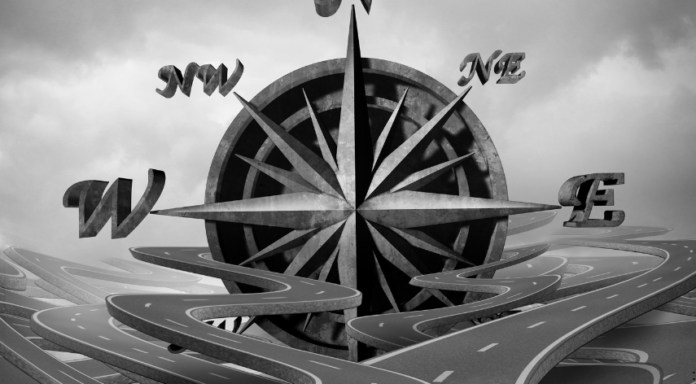Welcome to a world where the only constant is change. Uncertainty lurks around every corner, keeping us on our toes and challenging our sense of stability. In times like these, it’s crucial to navigate the murky waters of unpredictability with grace and resilience. Join us as we dive into the depths of uncertainty, exploring what it is, how it affects us, and most importantly, how we can conquer it together.
Understanding Uncertainty: What is it and How Does it Affect Us?
Uncertainty is like a shadow that follows us, lurking around the corner ready to catch us off guard. It’s that feeling of uneasiness when we can’t predict what lies ahead, making us question our decisions and actions. We crave stability and control, but uncertainty disrupts our sense of security.
The impact of uncertainty can be profound on our mental and emotional well-being. It can lead to anxiety, stress, and indecision as we grapple with unknown outcomes. Our minds race with “what ifs” as we try to navigate through the fog of uncertainty.
In times of uncertainty, it’s crucial to acknowledge our feelings and accept that not everything is within our control. By embracing the unknown with open arms, we can learn to adapt and grow amidst the chaos. Understanding uncertainty is about finding resilience in the face of ambiguity and using it as a catalyst for personal growth.
The Role of Control in Uncertain Times
During uncertain times, the need for control can be overwhelming. We often seek stability and predictability in a world filled with unknowns. However, it’s essential to recognize that complete control is an illusion. Instead of trying to micromanage every aspect of our lives, we can focus on what we can influence.
By acknowledging the limits of our control, we can cultivate resilience and adaptability. Embracing uncertainty as a natural part of life allows us to let go of the constant need for certainty. This shift in perspective enables us to navigate unpredictable situations with more ease and grace.
While we may not have control over external events, we do have agency over how we respond to them. Practicing mindfulness and staying present in the moment helps us stay grounded amidst chaos. By letting go of rigid expectations and embracing flexibility, we empower ourselves to face uncertainty with courage and strength.
Strategies for Coping with Uncertainty
When faced with uncertainty, it’s natural to feel overwhelmed and out of control. However, there are strategies that can help you navigate through these challenging times. One key approach is to embrace flexibility in your mindset and decision-making. By being open to change and adapting quickly, you can better respond to unexpected situations.
Another helpful strategy is focusing on the present moment rather than getting caught up in future what-ifs. Taking things one step at a time can alleviate anxiety and allow you to make clearer decisions based on the information available now. Building a strong support network is also crucial during uncertain times.
Having people who understand your situation and offer encouragement can provide much-needed emotional stability. Remember, coping with uncertainty is about finding ways to stay resilient and proactive despite the unknowns ahead.
A. Embrace Flexibility
In times of uncertainty, embracing flexibility is key to navigating the unknown with resilience. Instead of rigidly sticking to a set plan, being open to adapting and adjusting can help us better respond to unexpected changes. Flexibility allows for creativity and innovation in finding solutions when faced with challenges.
By maintaining a flexible mindset, we are better equipped to pivot quickly when circumstances shift. This agility can lead to new opportunities that may not have been apparent before. Embracing flexibility also fosters a sense of adaptability and resourcefulness, enabling us to thrive in uncertain environments.
Rather than seeing change as a threat, viewing it as an opportunity for growth can empower us to embrace uncertainty with confidence. Flexibility enables us to ride the waves of unpredictability with grace and resilience, ultimately leading to personal and professional development.
B. Focus on the Present Moment
In times of uncertainty, it’s easy to get caught up in worrying about the future. However, focusing on the present moment can help alleviate anxiety and stress. By grounding yourself in the here and now, you can better appreciate what you have today.
Take a moment to practice mindfulness by engaging fully in whatever task you’re doing at the moment. Whether it’s enjoying a cup of coffee or going for a walk, be fully present and savor the experience without letting your mind wander.
Acknowledging your thoughts and feelings without judgment can also help you stay centered in the present. Instead of getting carried away by worries about what might happen next, simply observe your emotions without reacting impulsively.
Remember that each moment is an opportunity to make choices that align with your values and priorities. By focusing on the present moment, you can cultivate a sense of gratitude for what you have right now, rather than dwelling on uncertainties about tomorrow.
C. Build a Strong Support Network
During uncertain times, having a strong support network can make all the difference in how we navigate challenges. Surrounding ourselves with friends, family, or even online communities who offer encouragement and understanding can provide a sense of security and comfort.
Sharing our worries and fears with trusted individuals not only helps us feel less alone but also allows for different perspectives on how to approach difficult situations. It’s essential to remember that asking for help is a sign of strength, not weakness.
By fostering relationships built on trust and empathy, we create a safe space where we can openly express our concerns without judgment. In return, offering support to others in their times of need strengthens the bond within our network.
In times of uncertainty, leaning on those who genuinely care about our well-being can give us the emotional boost needed to face challenges head-on. Building a robust support system is an investment in our mental and emotional resilience for whatever may come our way.
Preparing Finances for Uncertainty
Preparing your finances for uncertainty is essential in times of instability. One crucial step is to create an emergency fund that can cover at least three to six months’ worth of expenses. This fund acts as a safety net during unexpected situations like job loss or medical emergencies.
Another strategy is diversifying your investments across different asset classes to spread risk. Consider investing in stocks, bonds, real estate, and other instruments to minimize the impact of market fluctuations on your overall portfolio.
Reducing debt is also key to financial preparedness. Paying off high-interest debts can free up more money for savings and emergencies. Prioritize paying down debts with the highest interest rates first to save on long-term costs.
By taking proactive steps like building an emergency fund, diversifying investments, and reducing debt, you can strengthen your financial resilience against unforeseen challenges that may arise in the future.
A. Creating an Emergency Fund
In times of uncertainty, having an emergency fund can provide a sense of security and peace of mind. Building this financial cushion involves setting aside money specifically for unexpected expenses or emergencies that may arise.
Start by determining how much you need to save based on your monthly expenses and financial obligations. Aim to set aside at least three to six months’ worth of living expenses in your emergency fund.
Consider opening a separate savings account dedicated solely to your emergency fund. This will help prevent the temptation to dip into it for non-urgent purchases.
Make regular contributions to your emergency fund, even if they are small amounts. Consistency is key in building up this safety net over time.
Remember, an emergency fund is not just about preparing for the worst-case scenario; it’s also about giving yourself the flexibility and freedom to navigate uncertain times with confidence.
B. Diversifying Investments
When it comes to navigating uncertainty, diversifying investments is a key strategy to consider. By spreading your money across different asset classes such as stocks, bonds, real estate, and commodities, you can reduce the overall risk in your investment portfolio.
Diversification helps protect against significant losses that may occur in one particular sector or asset class. For example, if the stock market experiences a downturn, having investments in other areas like bonds or real estate can help offset potential losses.
It’s important to review your investment portfolio regularly and make adjustments as needed to ensure proper diversification. Consider working with a financial advisor who can provide guidance on creating a well-balanced investment strategy tailored to your financial goals and risk tolerance.
Remember that while diversification doesn’t guarantee profits or eliminate all risks, it can help you weather uncertain times more effectively.
C. Reducing Debt
We all know that carrying debt can add an extra layer of stress to our lives, especially during times of uncertainty. Reducing debt not only lightens the financial burden but also provides a sense of relief and freedom.
Start by taking stock of your current debts – credit cards, loans, mortgages. Understand the interest rates and monthly payments for each one. This knowledge will help you prioritize which debts to tackle first.
Consider creating a repayment plan that focuses on paying off high-interest debts first while making minimum payments on others. Small victories in reducing balances can keep you motivated along the way.
Look for opportunities to cut expenses and allocate those savings towards debt repayment. Every little bit helps in chipping away at what you owe.
Remember, reducing debt is a gradual process that requires discipline and patience. Stay committed to your goals, and over time, you’ll see progress towards a more financially secure future.
Conclusion:
Navigating uncertainty is a challenge that we all face at some point in our lives. It’s essential to remember that uncertainty is a natural part of life, and learning how to cope with it can help us grow and adapt. By embracing flexibility, focusing on the present moment, and building a strong support network, we can navigate uncertain times more effectively.
When it comes to preparing our finances for uncertainty, creating an emergency fund, diversifying investments, and reducing debt are crucial steps to take. These actions can provide us with a sense of security and stability during unpredictable times.
Remember that uncertainties will always arise in life, but by implementing these strategies and being proactive about financial preparedness, we can better weather any storm that comes our way. Stay resilient, stay adaptable, and remember that you have the strength within you to overcome whatever challenges may come your way.
FAQs
Q: What is the best way to navigate uncertainty in personal finances?
A: The key to navigating uncertainty in personal finances is by embracing flexibility, focusing on the present moment, and building a strong support network. Additionally, preparing your finances for unexpected events by creating an emergency fund, diversifying investments, and reducing debt can help provide a sense of security during uncertain times.
Q: How can I start building an emergency fund?
A: To start building an emergency fund, set aside a small portion of your income each month into a separate savings account. Aim to save enough to cover at least three to six months’ worth of living expenses for added financial security.
Q: Is it important to diversify investments during uncertain times?
A: Yes, diversifying investments is crucial during uncertain times as it helps spread risk across different asset classes. By investing in a mix of stocks, bonds, real estate, and other assets, you can better weather market fluctuations and protect your overall portfolio.
Remember that while uncertainty may be inevitable in life, how we choose to respond to it can make all the difference. By implementing these strategies and taking proactive steps towards financial preparedness today,you can navigate through uncertain times with greater confidence and resilience.


